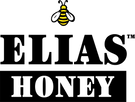In recent years, sustainable and regenerative agriculture has gained significant attention as a solution to environmental challenges.
"Honey production and cultivation play a crucial role in this movement, offering both ecological benefits and opportunities for enhanced food security"
Join us as we explore how beekeeping and honey production contribute to sustainable and regenerative agriculture - not only in Canada, but around the world!
The Role of Bees in Sustainable Agriculture
Bees are vital pollinators in agricultural ecosystems. Their pollination services are essential for the production of many crops, including fruits, vegetables, and nuts. In Canada, bees contribute to the pollination of key crops such as canola, blueberries, and apples. By ensuring the health and productivity of these crops, bees help maintain biodiversity and support the stability of agricultural ecosystems.
Honey Production and Its Environmental Benefits
-
Promoting Biodiversity: Beekeeping encourages the preservation of natural habitats and diverse floral sources. Beekeepers often plant a variety of flowering plants to support bee populations, which in turn promotes biodiversity.
-
Supporting Soil Health: Bees contribute to soil health through the pollination of cover crops. Cover crops, such as clover and alfalfa, improve soil structure, prevent erosion, and enhance nutrient cycling. These practices are integral to regenerative agriculture, which focuses on restoring and maintaining soil health.
-
Reducing Chemical Inputs: Sustainable beekeeping practices reduce the need for chemical inputs in agriculture. By promoting natural pollination, beekeepers help farmers reduce their reliance on synthetic fertilizers and pesticides, leading to healthier ecosystems and safer food products.
Innovations in Canadian Beekeeping
Canadian beekeepers are at the forefront of innovative practices that enhance the sustainability and productivity of honey production. These innovations include:
-
Integrated Pest Management (IPM): IPM techniques help manage bee pests and diseases with minimal chemical intervention, promoting bee health and reducing environmental impact.
-
Bee Health Enhancement Programs: Selective programs aimed at enhancing bee health are developing resilient bee strains that can withstand harsh Canadian winters and resist diseases. These programs are crucial for maintaining healthy bee populations and ensuring the sustainability of honey production.
-
Technological Advancements: The use of technology in beekeeping, such as hive monitoring systems and data analytics, helps beekeepers optimize hive management, improve honey yields, and reduce losses.
The Future of Honey Production in Canada
As awareness of sustainable and regenerative agriculture grows, the role of honey production in Canada will become increasingly important. Collaborative efforts between beekeepers, farmers, researchers, and policymakers are essential to address challenges such as climate change, habitat loss, and bee health.
Conclusion
Honey production and cultivation are integral to the advancement of sustainable and regenerative agriculture. By supporting pollination, enhancing biodiversity, and promoting soil health, beekeeping contributes to the resilience and sustainability of agricultural systems. As we look towards a more sustainable future, the role of bees and beekeepers in Canada cannot be overstated.
Investing in and supporting the honey production industry is not just about producing honey—it's about fostering a healthier, more sustainable environment for generations to come! And the best part?
The sweetest of products are essentially a natural outcome of supporting sustainable and regenerative agricultural practices!
To explore our collection of sustainably sourced and organic honeys, check out our products page or save up to 15% by shopping our unique honey bundles!




